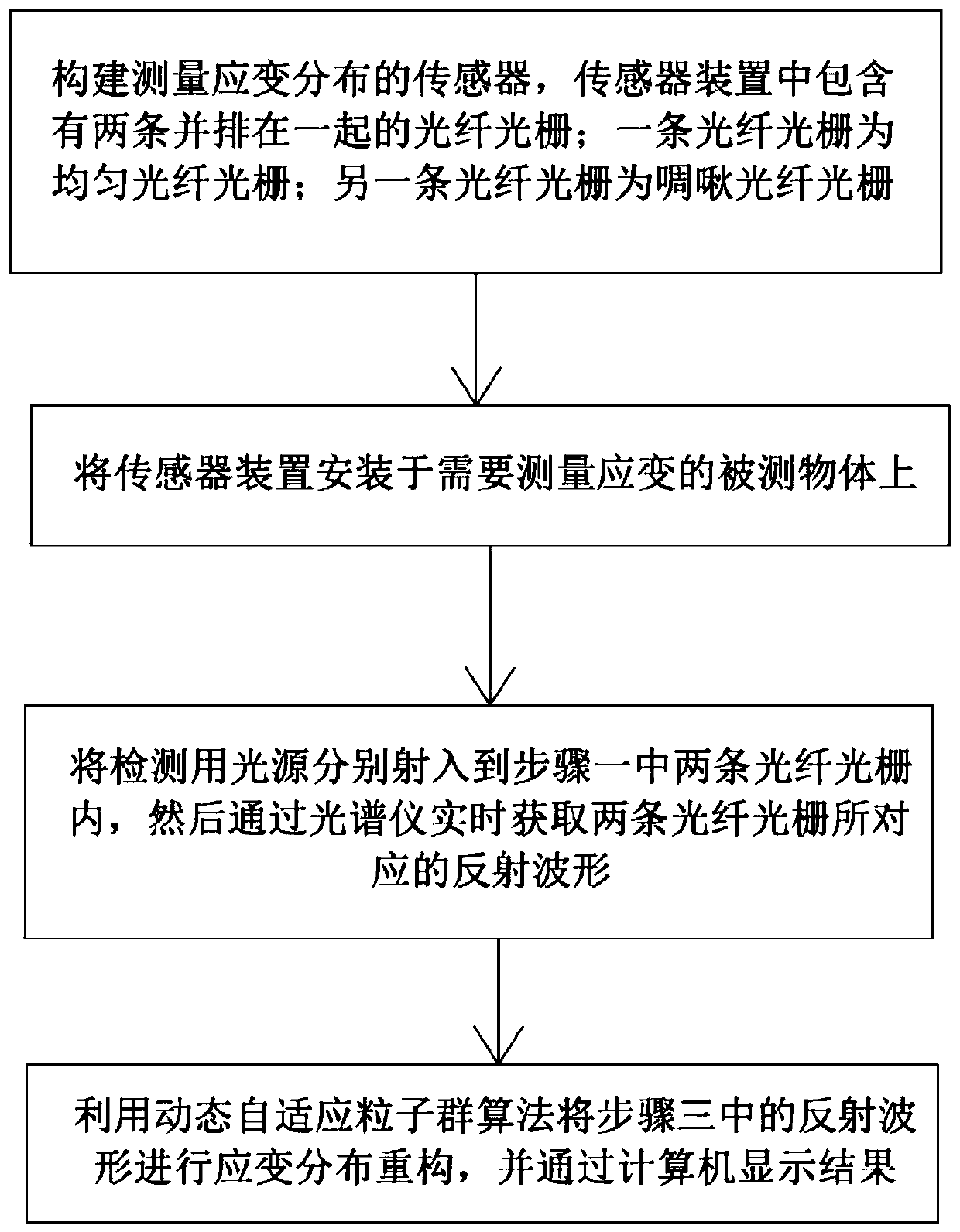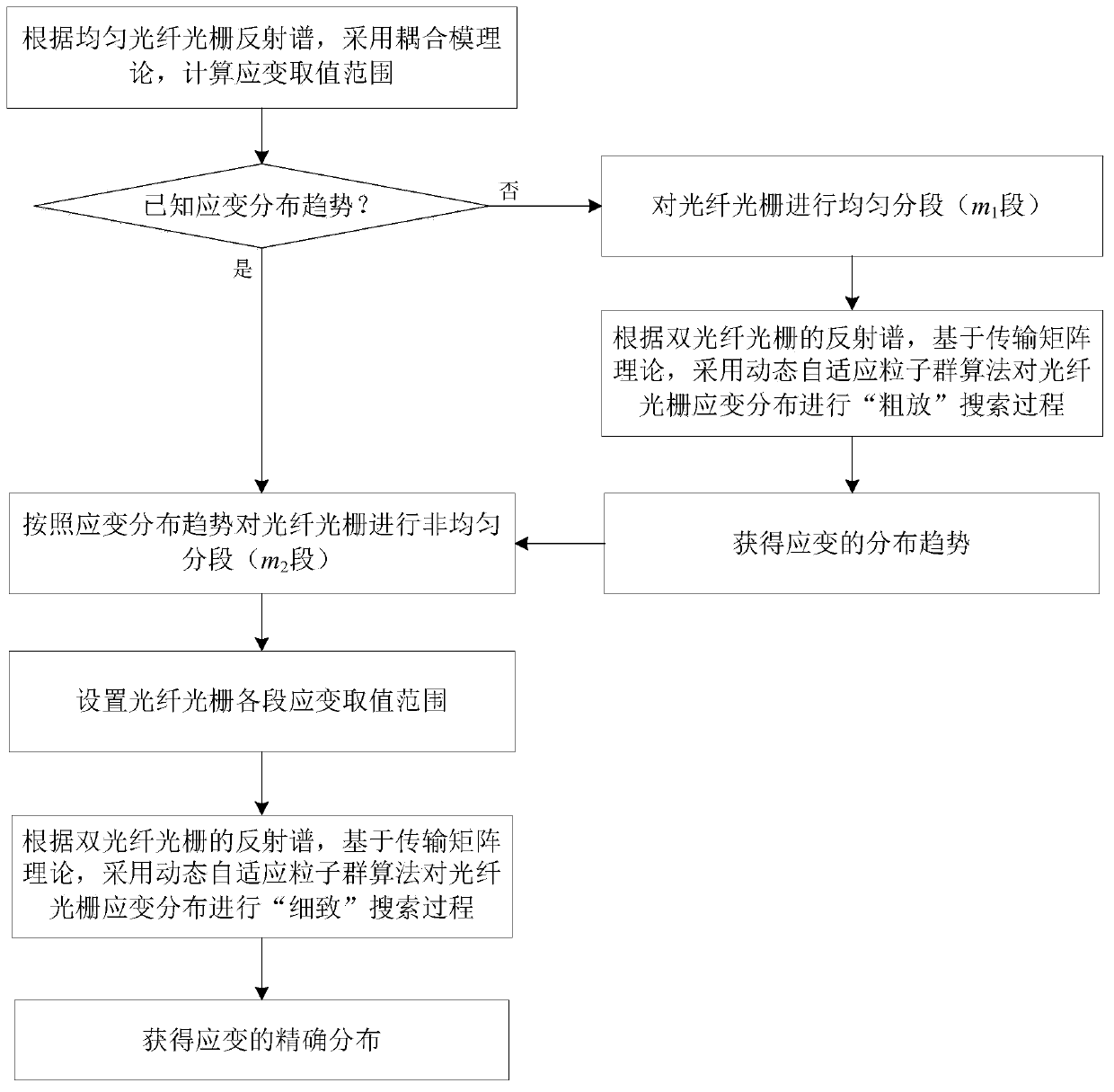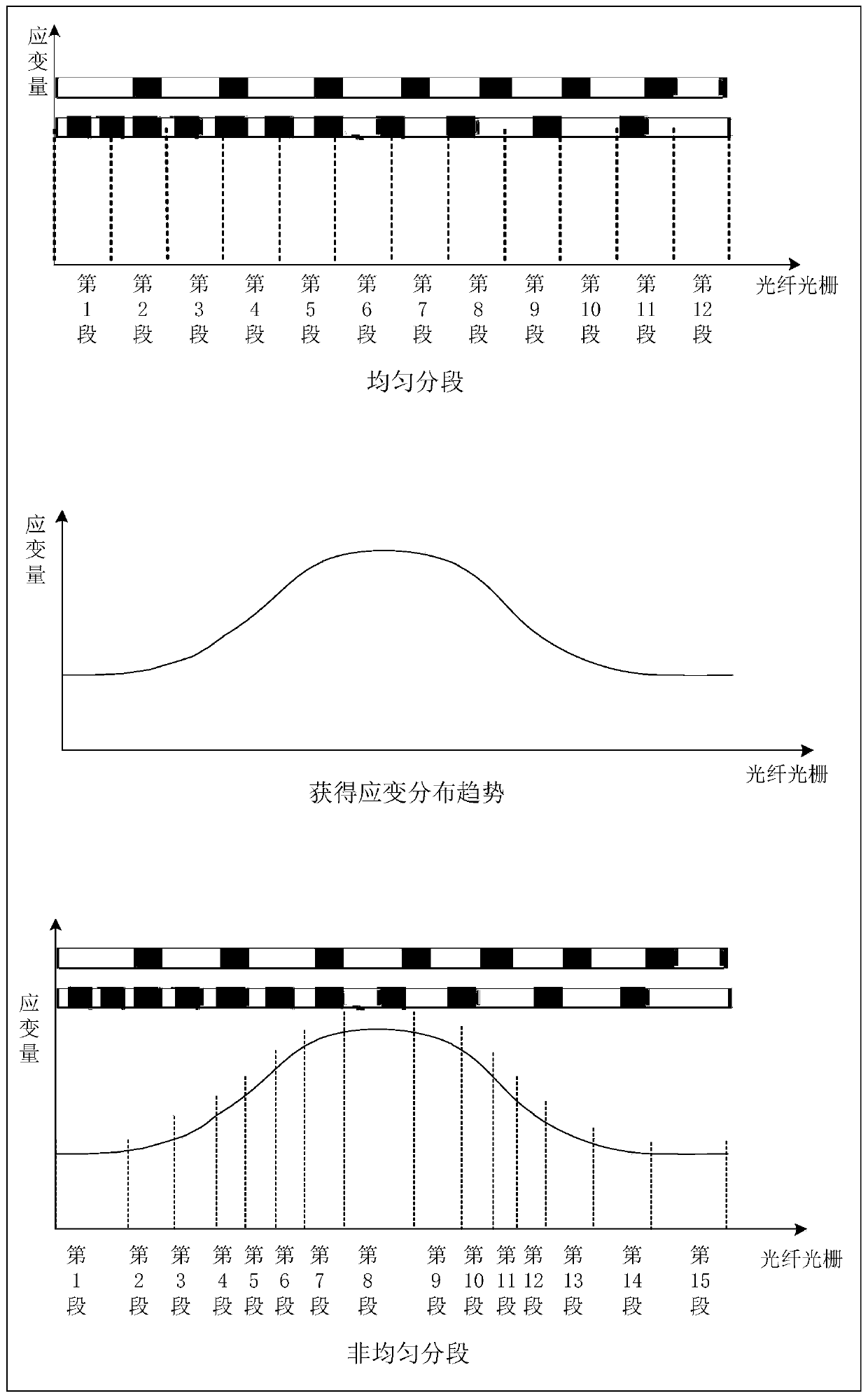Fiber bragg grating strain distribution reconstruction method based on dynamic adaptive particle swarm algorithm
A particle swarm algorithm and dynamic self-adaptive technology, applied in the direction of using optical devices to transmit sensing components, using optical devices, converting sensor outputs, etc., can solve the problems of non-monotonic distribution of strain reconstruction that is difficult to apply and limited use occasions , to achieve the effect of speeding up the search speed and accuracy, and speeding up the speed and precision
- Summary
- Abstract
- Description
- Claims
- Application Information
AI Technical Summary
Problems solved by technology
Method used
Image
Examples
Embodiment Construction
[0054] The present invention will be described in further detail below in conjunction with the accompanying drawings.
[0055] combined with figure 1 , a method for reconstructing strain distribution of FBG based on dynamic adaptive particle swarm optimization algorithm, which includes the following steps:
[0056] The first step is to construct a sensor device for measuring the strain distribution, which is used to collect the original signal of the strain distribution; the sensor device includes two fiber gratings arranged side by side; one of the fiber gratings is a uniform fiber grating; the other fiber grating The grating is a chirped fiber grating;
[0057] The second step is to install the sensor device on the measured object that needs to measure the strain;
[0058] In the third step, the detection light source is respectively injected into the two fiber gratings in the first step, and then the reflection spectrum corresponding to the two fiber gratings is obtained ...
PUM
 Login to View More
Login to View More Abstract
Description
Claims
Application Information
 Login to View More
Login to View More - R&D
- Intellectual Property
- Life Sciences
- Materials
- Tech Scout
- Unparalleled Data Quality
- Higher Quality Content
- 60% Fewer Hallucinations
Browse by: Latest US Patents, China's latest patents, Technical Efficacy Thesaurus, Application Domain, Technology Topic, Popular Technical Reports.
© 2025 PatSnap. All rights reserved.Legal|Privacy policy|Modern Slavery Act Transparency Statement|Sitemap|About US| Contact US: help@patsnap.com



